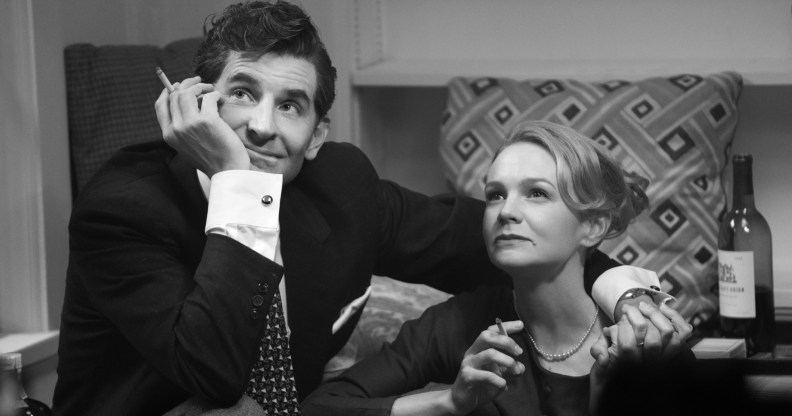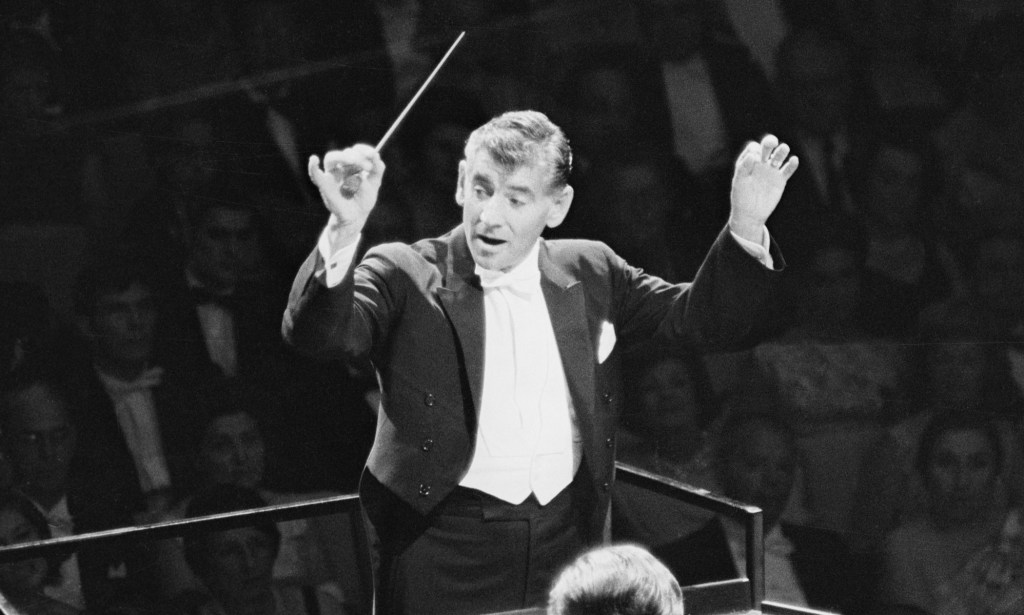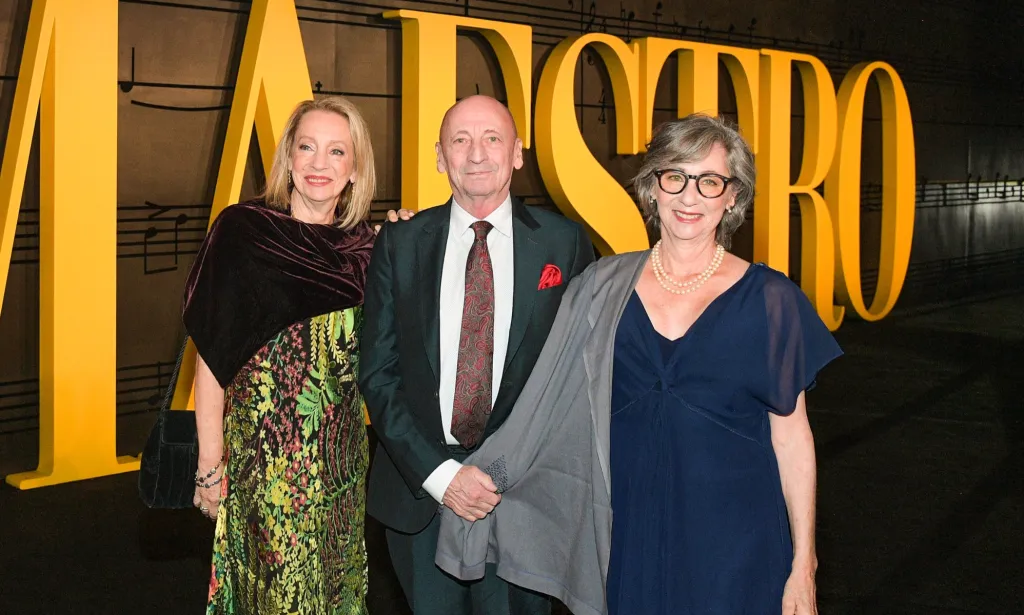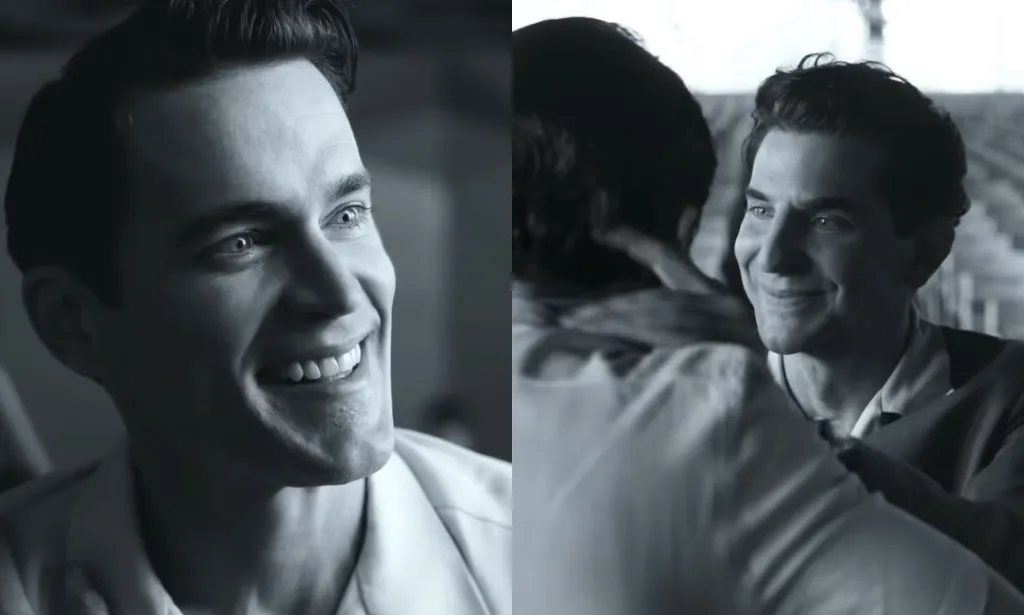Was Leonard Bernstein gay or bisexual? The true story as Bradley Cooper’s Maestro hits Netflix

Bradley Cooper and Carey Mulligan in Maestro. (Netflix)
As Netflix’ highly-anticipated Leonard Bernstein biopic Maestro hits arrives on Netflix, the question of whether the famed composer was gay or bisexual is being raised – so what do we actually know about his sexxuality?
Maestro, directed by and starring Bradley Cooper, chronicles the “fearless love story” between the West Side Story composer and his wife of almost 27 years, Felicia Montealegre (Carey Mulligan).
Described as a “love letter to life and art”, Maestro arrived on Netflix on Wednesday (20 December), and has already received major awards buzz, picking up four Golden Globe nominations.
But there’s a lot more than meets the eye to this supposedly sweet love story, not least around Bernstein’s identity. So what do we know about Bernstein’s sexual orientation and how far does the film go in portraying his truth?
Who was Leonard Bernstein?
Known as the United States’ most legendary composer, Leonard Bernstein was born in Lawrence, Massachusetts in August 1918 to Jewish parents Jennie and Samuel Joseph Bernstein (who immigrated from Rivne in modern-day Ukraine).
He started learning the piano from a an early age and went onto study music at Harvard University.
Graduating on the cusp of World War Two, Bernstein’s music career truly kicked off when he stepped in as understudy for Bruno Walter at Carnegie Hall in November 1943. His last-minute concert was met with critical acclaim and soon he was flung into the international spotlight.
As Bernstein landed one esteemed position after another within the classical music industry, in 1951 he married Chilean actress and pianist, Felicia Montealegre.

He went onto serve as Music Director at the New York Philharmonic from 1958 to 1969, where he was awarded the lifetime title of Laureate Conductor. Meanwhile, he completed several large-scale projects in a nod to his Jewish heritage such as Symphony No. 1: “Jeremiah” (1943).
Most notably, Bernstein is known for his influence over some of the biggest Broadway musicals of the time, including Stephen Sondheim’s West Side Story in 1957. He continued to work right up until his death in October 1990 at the age of 72, leaving behind three children (Jamie, Alexander and Nina).
Was Leonard Bernstein gay or bisexual?
Despite Leonard Bernstein’s almost 27-year-long marriage to his wife Felicia Montealegre (who died in 1978), it is well-documented that Bernstein also had affairs with men throughout his lifetime.
The pair first met in 1946 and, after a turbulent on-off again engagement, married in 1951. Around this time, Montealegre wrote a letter to Bernstein in which she described their marriage as a “bloody mess” but stated that she was ready to accept him for he was.
The Leonard Bernstein Letters, published in 2014, included a letter in which Montealegre acknowledges his sexuality.
She said: “You are a homosexual and may never change – you don’t admit to the possibility of a double life, but if your peace of mind, your health, your whole nervous system depend on a certain sexual pattern what can you do?
“I am willing to accept you as you are, without being a martyr or sacrificing myself on the L.B. altar. (I happen to love you very much – this may be a disease and if it is what better cure?)”
A 2018 memoir written by Bernstein’s daughter Jamie, Famous Father Girl: A Memoir of Growing Up Bernstein, she also reflected on his identity.
“He slept with many men and with women, too. He seemed to be omnisexual, a man of unending appetite who worked and played all day and most of the night,” a New Yorker book review reads.

Jamie also documented the increasing tension between her parents, who eventually separated in 1976. In one incident Jamie recalled Montealegre cruelly proclaiming to Bernstein: “You’re going to die a lonely, bitter old queen.”
As for his male lovers, it is widely believed Bernstein had an affair with an Israeli soldier Azaria Rapoport in 1948, later saying he was “all the things I’ve wanted rolled into one.” Others have speculated over the nature of his longstanding relationship with gay US composer Aaron Copland.
In the last decade of his life, Bernstein struck up a romance with a Japanese man named Kunihiko Hashimoto. In one letter, he called their time together a “beautiful dream”.
After Bernstein’s separation from Montealegre in 1976, he moved in with San Francisco classical radio music director Tom Cothran.
Reflecting on their relationship, Jamie said in an 2018 interview: “By the time I was in my senior year he was cohabiting with Tom Cothran, who was helping him put together the Norton Lectures (six lecture Bernstein delivered at Harvard), so by then it was pretty clear what was going on.”
During this interview, Jamie called Bernstein “bisexual” but his exact sexual orientation still remains a contentious issue, with most now agreeing that Bernstein was a gay man who married a woman at a time when there was little public acceptance of homosexuality in the US.
West Side Story collaborator Arthur Laurents has been very clear in his belief that Bernstein was “a gay man who got married. He wasn’t conflicted about his sexual orientation at all. He was just gay.”
Meanwhile, Bernstein biographer Paul R. Laird previously told TIME: “There’s no question that Felicia served as his beard.”
During the press run ahead of the release of Maestro, Jamie spoke about her parents’ relationship, stating that her mother “knew exactly what the deal was.”
Alexander added: “They obviously loved each other to death. They never fought in front of us. We never saw any darkness. We felt a lot. They kept everything very well-tidied and well-hidden.”
How is Bernstein’s sexuality depicted in Bradley Cooper’s Maestro?
According to TIME, Bradley Cooper’s Maestro offers an “accurate” portrayal of the complexities of Leonard Bernstein’s romantic life. In the film, Fellow Travelers star Matt Bomer plays well-known clarinetist David Oppenheim, who was briefly Bernstein’s lover.
“On the Library of Congress webpage, there’s a lifetime’s worth of personal letters between the two of them,” Bomer said of researching Oppenheim’s personal relationship to Bernstein.
“Lenny also wrote a beautiful sonata for him that I listened to quite a bit, that was really mournful and full of yearning and longing as well.’

In 2022, widely-circulated images of Cooper and Bomer kissing on the set of Maestro were published, indicating that the film portrays physical intimacy between the two.
While Mashable adds: “There’s never a verbal conversation about why Bernstein can’t be seen dating men in public (of course, the time period is self-explanatory), but there are several silent exchanges that elucidate the feelings of betrayal therein.”
However, some viewers have complained that Maestro does not go far enough in exploring Bernstein’s identity as a gay man living in the mid-20th century US.
“Maestro spends 2 hours and 9 minutes aggressively avoiding saying the word ‘gay’. It’s like they built the movie around being able to screen it in Florida classrooms,” one viewer wrote.
Maestro is now available to stream on Netflix.

